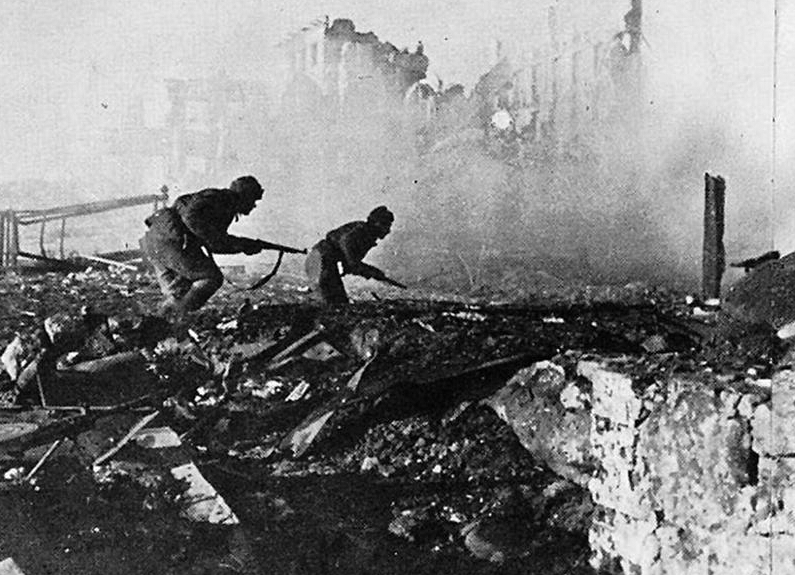He orders the factories along with their machines and their workers to relocate to the East, to the Ural mountains.
他命各工厂,将工厂、机器和工人运至东部的乌拉山区。
And he gives farmers and peasants an absolute order "Leave, leave your isba, your house. Destroy everything."
他对农民和佃农下了一道绝对的命令:“离开你们住的小木屋,并摧毁所有东西”。
Leave behind nothing that can be of any use to the fascist-Hitler-right aggressor.
别留下任何有用的东西给那些法西斯分子希特勒主义侵略者。
This is Stalin's Scorched Earth Policy.
这是斯大林的焦土政策。
The German officers have not forgotten about Napoleon.
德国军官并未忘记拿破仑。
In 1812, the Russians defeated Napoleon's Napoleon's Grand Army by burning their towns and fields,
1812年俄国人打败拿破仑的大军,方法是烧毁他们自己的城镇和田地,
and then massacre the French in the Battle of Berezina.
然后在柏勒及纳之战大肆屠杀法国人。

In early July 1941, the Germans also reach the Borodino river on the central front and they keep going.
1941年7月初德军也将中部的战线推至柏勒及纳河,并且继续前进。
Resistance by the Soviet is growing stronger.
苏联的抵抗越来越激烈。
On the other side of the river, an unpleasant surprise awaits the Germans.
在柏勒及纳河的另一边有出人意料的坏事在等着德军。
The Russians've set up a new kind of artillery, a rocket launcher called "Stalin's Organ" or "Katyusha",
苏联人架设了一种新型火炮,这种火箭发射器叫做“斯大林的风琴”或“卡秋沙”。
because of its sound like a nest organ pipes, a most terrified weapon.
因为它的声音就像一组风琴管,是一种最可怕的武器。
But nothing can stop the German advance.
但没有什么可阻挠德军前进。
By mid July, they have reached Smolensk, the last big city before Moscow.
他们在7月中抵达斯摩林斯克,位于莫斯科之前的最大城市。
The battle for Smolensk lasts 3 weeks.
斯摩林斯克之战持续3星期。
The Russians fight until the very end, despite the calls for surrender coming over the German loud-speakers.
苏联人作战到最后一刻,尽管德军使用扩音器呼叫他们投降。
Very few are taken prisoner.
遭俘虏的人数极少。
Some of the survivors go into hiding in the deep forests and become insurgents.
有些生还者躲到森林深处,然后成为游击队。


